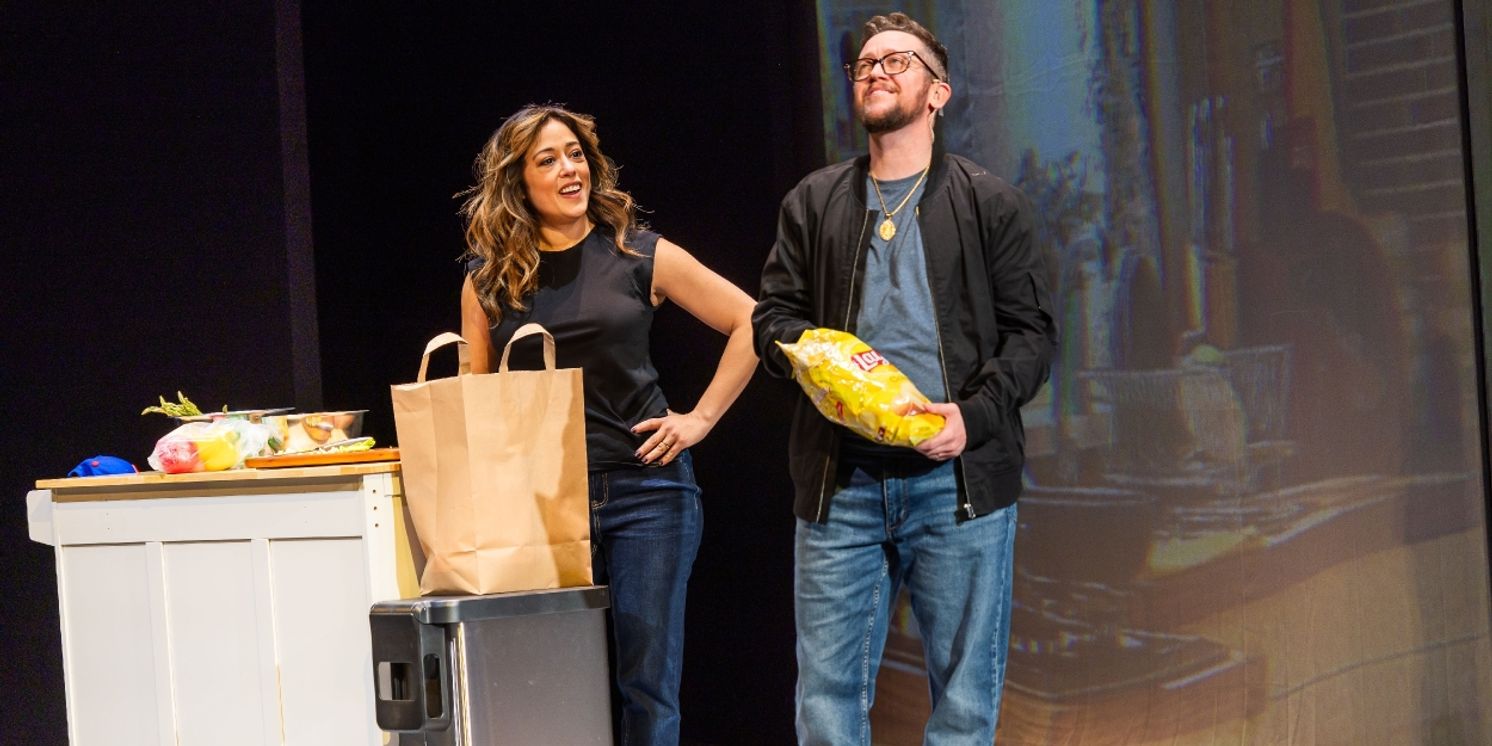Review: Compelling transitions abound in A.R.T.'s BECOMING A MAN
World-premiere production runs through March 10 at Loeb Drama Center

P. Carl, an award-winning dramaturg and writer, was well-established in his theater career – developing new works at regional theaters including Playwrights’ Center in Minneapolis, Steppenwolf in Chicago, and Arena State in Washington, D.C. – when he accepted a faculty position at Emerson College and was appointed co-artistic director of ArtsEmerson and later a senior distinguished artist in residence.
Carl soon became a respected member of the Boston theater community, and a gifted storyteller whose work challenges, informs, and entertains audiences. He is doing just that once again, this time sharing his own story, in “Becoming a Man,” a compelling American Repertory Theater-commissioned world premiere at the Loeb Drama Center in Cambridge through March 10.
As the playwright has put it, “As a trans person, I spent most of my life with my head in a book imagining other lives, other bodies, and other histories. But reading wasn’t just about imagining myself as a man, it was about imagining, period – a way of holding myself together until the day I could viscerally feel my own existence. ‘Becoming a Man’ is about surviving, becoming embodied, and learning to live.”
A moving story of the courage and determination it takes to become ourselves, the play details how Carl lived first as a girl, then as a queer woman building a career and in a loving marriage, all while building toward a time when he could begin to live full-out as the man he is. We see how that female-to-male transition changed and even jeopardized his relationships with his wife and family, his friendships, and his career.
Adapted from his best-selling 2020 memoir “Becoming a Man: The Story of a Transition,” the action moves along briskly under the thought-provoking and sensitive direction of Carl – a 2017 Ford Foundation Art of Change Fellow, and dramaturg for the 2016 ArtsEmerson world premiere of Melinda Lopez’s “Mala” and for 2018’s “The White Card,” an ArtsEmerson presentation of an A.R.T. production – and co-director Diane Paulus, A.R.T.’s artistic director and a Tony Award winner for her direction of the 2013 revival of “Pippin.”
It is clear from the outset that Carl, played by Petey Gibson in a performance that too often favors exuberance over nuance, is understandably pleased that he can finally live his truth. Unfortunately, his transition is not entirely smooth and his past follows him in the form of Polly (a fine Stacey Raymond), Carl’s name in his earlier life.
It’s while living as Polly that Carl met and married his wife of 20 years, Lynette (played with a convincing range of emotions by Elena Hurst), in what was then a same-sex marriage. So while Carl now understandably exults in being called “sir” instead of “ma’am,” and finally being able to wear a male bathing suit while pursuing his favorite pastime of swimming, there are challenges, too.
The biggest of those involves his marriage. Their history as a committed couple is muddied by Carl’s transition. For Lynette, a lesbian, what has long been a marriage to and centered on another queer woman is now becoming a hetero relationship, a change that unsettles her. Gibson and Hurst are affectingly naturalistic in their scenes together. You understand their conflict, but root for the tenderness both characters feel for one another to win out as they navigate their new normal.
Carl’s multi-layered relationship with his parents is seen on a visit he and Lynette pay them in Elkhart, Indiana. Carl’s mother (a wonderful Susan Rome, who also does fine work in other scenes as Carl’s compassionate psychiatrist) is understanding, while his more complex father (a fascinating Christopher Liam Moore) is selfishly manipulative.
Also doing terrific scene work are Justiin Davis as Carl’s trainer-turned-friend, and Cody Sloan as Nathan, Carl’s longtime confidante and fellow transmasc, with each in their own way providing Carl with both inspiration and grounding.
Quibbles about the Midwest being presented, as it so often is, as a land of La-Z-boy-loving rubes living in dated, worn-looking houses aside, scenic designer Emmie Finckel’s well-executed sets evoke everything from Lynette and Carl’s contemporary apartment and a gym locker room to Italy and Boston, and even a swimming pool, all enhanced by Brittany Bland’s video design. Qween Jean’s costumes capture the distinct look of each character, while Cha See’s lighting designs help’s to define the various moods.
The essential question asked in the proceedings – “When we change, can the people we love come with us?” – is answered in Carl’s honest and meaningfully candid writing and dramatized in what is ultimately a production of abundant hopefulness and joy.
In Act II, a 20-minute post-show discussion that follows each performance, the audiences was invited to react to what they had just seen. Facilitated on opening night by associate director Lyam P. Gabel, the experience engaged many of the theatergoers and reinforced the power of community.
Photo caption: Elena Hurst as Lynette and Petey Gibson as Carl in a scene from the world premiere American Repertory Theater production of “Becoming a Man.” Photo by Nile Scott Studios/Maggie Hall.
Reader Reviews
Videos

